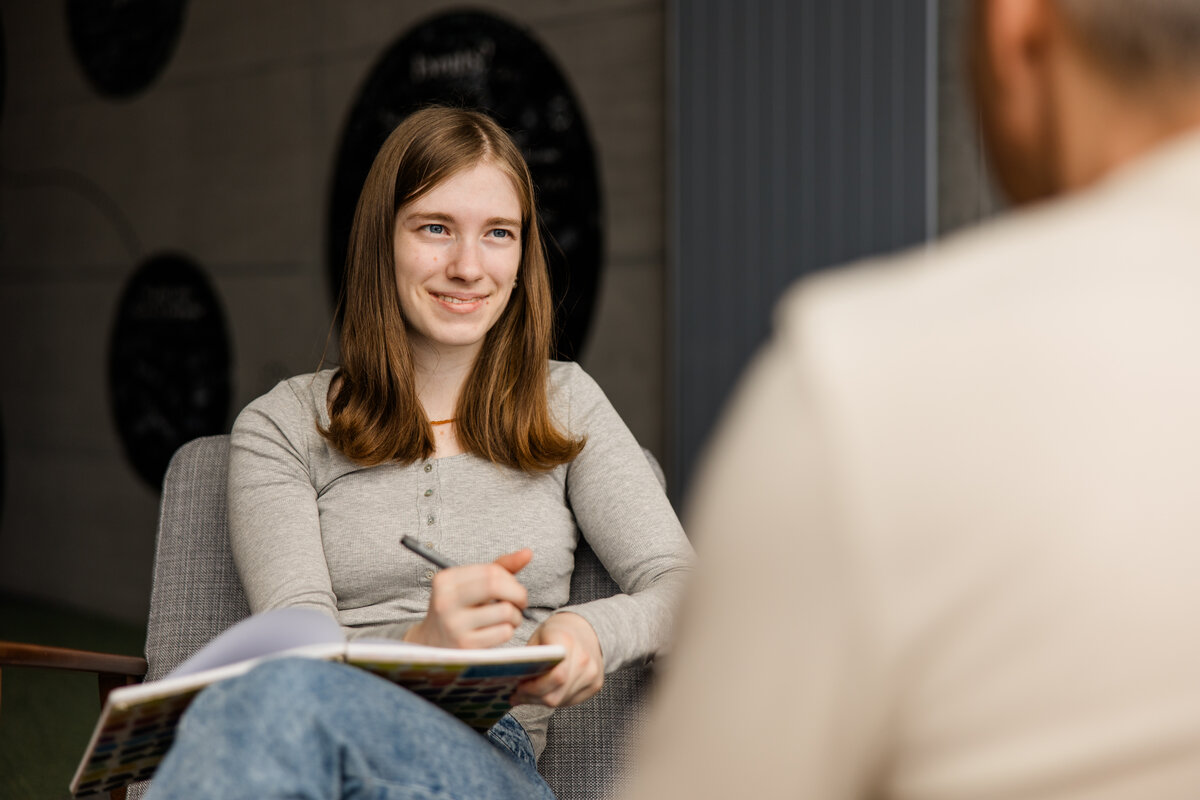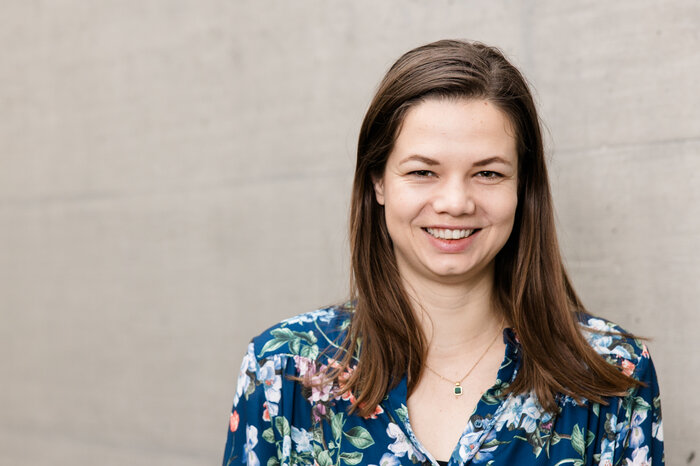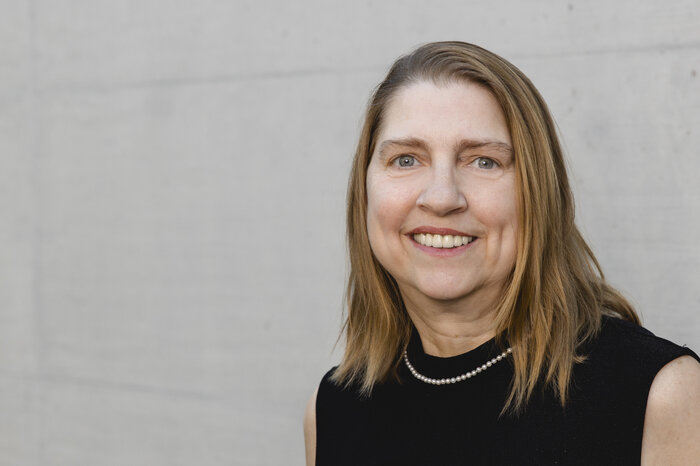Social Work
Bachelor's degree, full-time
In the Bachelor's degree programme in Social Work, people and communities – with all their many facets, characteristics, challenges and conflicts – are at the heart of your studies. You will explore different life situations and learn how to support and accompany individuals in a professional manner. Thanks to flexible structures and close cooperation with social institutions, you can bring your practical experiences directly into your studies – and apply what you learn in real-world settings.
After graduation, a wide range of exciting opportunities awaits you: whether in education, healthcare or counselling – there is a growing need for people who act with compassion, expertise and social competence. Your skills are in demand – and can be applied in many different fields.
You can choose to study full-time or opt for the extended part-time option alongside your work.
The 180 ECTS credits are distributed across 6 semesters and include compulsory modules, elective specialisations, and the Bachelor's thesis.
Legend and further information
Elective specialisation (17 ECTS): you choose your elective specialisation from the following areas in the 3rd semester and thus determine the subjects of the 4th and 5th semesters.
Individual competences (flex subjects): at least 12 ETCS are acquired in the form of individual electives (e.g. electives, micro-credentials in an international context, further specialisation options, etc.), whereby it is not specified in which semester how many ETCS are to be completed.
ECTS: Credit points based on the European Credit Transfer System (ECTS). Consistent with international standarts, 30 ECTS points ca be earned each semester.
Course content in detail
Courses and examinations take place:
- Usually Monday to Friday between 8:00 AM and 6:00 PM
- Student activities alongside studies are possible in accordance with the timetable.
Mobility window:
- Semester abroad in the 4th semester (recommended)
Internship:
- Orientation internship (100 hours) in the 2nd semester
- Professional internship (600 hours + supervision) in the 5th semester.
You can also complete the professional internship abroad. One example is the Global Social Dialogue internship programme in the field of international social work/development work. Preparatory, accompanying and follow-up seminars and supervision round off the practical units.
The Bachelor's thesis relates thematically to social work practice and/or the field of activity of the professional internship. It is advisable to draw on practical experience (professional internship, orientation internship, professional experience).
- Admission to the final oral examination:
- all courses in the curriculum must have been successfully completed (examination regulations and grading scale) and
- the Bachelor's thesis must have been graded positively.
- Degree awarded: Bachelor of Arts in Social Sciences, BA
- Level of the degree according to the national and European qualifications framework: Bachelor (1st cycle)
- Field of study according to ISCED-F code: 0923 - Social work and counselling
Career perspectives
With a degree in Social Work, many doors open for you. Social workers are needed wherever people require support. You can work in youth centres, schools, hospitals, or with social organisations. You are also in demand in workplace social services, as a coach, or in counselling. If you want to make an international impact, assignments in development cooperation or humanitarian aid are even possible. Regardless of the path you choose, you work with people – and your work makes a difference.
Furthermore, the degree qualifies you for further master’s studies at a university of applied sciences or university, both domestically and abroad. At FHV, we offer a part-time master’s programme in Social Work that provides advanced training. Building on this, a doctoral or PhD programme at a university is possible.
Social Work student stories
Why study Social Work at FHV?
- There is a growing demand for qualified professionals in Social Work and Social Pedagogy – both locally and internationally. This opens up a wide range of career opportunities in a socially important field.
- FHV works closely with partner companies and organisations, allowing you to apply your knowledge directly and benefit from real practical projects, field trips, and supervision.
- In the fourth semester, you have the opportunity to study at a partner university abroad. You can also complete your professional internship overseas – an important step for your international career.
- The Social Work programme at FHV is internationally recognised and prepares you thoroughly for the diverse challenges in social work.
- The courses of the bachelor's degree programme Social Work have a very close thematic relation to the Research Group Empirical Social Sciences at the FHV.
Access and application
The Bachelor’s degree programme in Social Work requires the following qualifications or competencies:
-
General university entrance qualification (A-levels), or
-
Relevant vocational qualification with additional examinations
All Austrian apprenticeships, as well as qualifications from vocational middle schools, business schools and their special forms, and the completion of at least a three-year vocational middle school for social professions (or a comparable programme in the psychosocial field in terms of scope and requirements), are proposed as relevant vocational qualifications.
Further restriction of relevant vocational qualifications to specific apprenticeship professions is not considered appropriate, given the dynamic development of the professional field and the need for an innovative and interdisciplinary approach to the social work profession.
The relevance of qualifications is determined by the degree programme director. Applicants with a relevant vocational qualification must successfully complete the additional examinations at FHV.
For admission, proof of language proficiency at level B2 in both German and English (according to the Common European Framework of Reference for Languages) is required.
The application deadlines at the FHV are divided as follows:
Application deadline I - 15th November - 1st March
By applying by March 1st, you will benefit from a faster confirmation of your study place
Application deadline II - until 31st May
You can apply for all degree programmes until 31st May.
Application deadline III - until 31st August
Some degree programmes still have a few places available until 31st August.
Note: The ultimate application deadline for all applications sent from third countries (non EU or non-EEA, with the exception of Switzerland) is 1st March.
Information on applying with work experience for the bachelor’s degree programme in Social Work
As part of the admissions process for the Bachelor’s degree in Social Work, your previous professional experience will be taken into account. The following activities are recognised as “work experience”. Please upload the relevant supporting documents, such as employment references, in your online application.
- Voluntary Social Year
- Civilian Service
- Relevant internship (within a social organization) lasting at least 6 months
- Professional experience of any kind
Important: Only upload supporting documents that fall into one or more of the categories listed above. Other activities and periods of study are explicitly excluded and will not be considered.
Two steps to your desired degree programme at FHV:
Step 1:
Evaluation of your letter of motivation, CV, eligibility requirements and previous experience.
Step 2:
In a personal admission interview, we will learn more about you, your goals and your motivation for studying.
Previous study achievements can be credited individually in individual courses during your studies. This also applies to coursework that you have already completed at a recognised college or university. The equivalence of the acquired knowledge with the requirement profile with regard to the content and scope of the courses to be waived will be checked upon your application. If equivalence is determined, positively completed examinations will be recognised. A knowledge check is not planned in these cases. You will receive details on this in a meeting with the programme director.
Do you still have questions about the study programme?
For a personal consultation, please contact us directly:
| Tuesday & Thursday | 8:30 - 11:30 am |
or individual appointment
Information events are held at the FHV throughout the year. You are welcome to drop by and get advice. Here is an overview of upcoming events:


